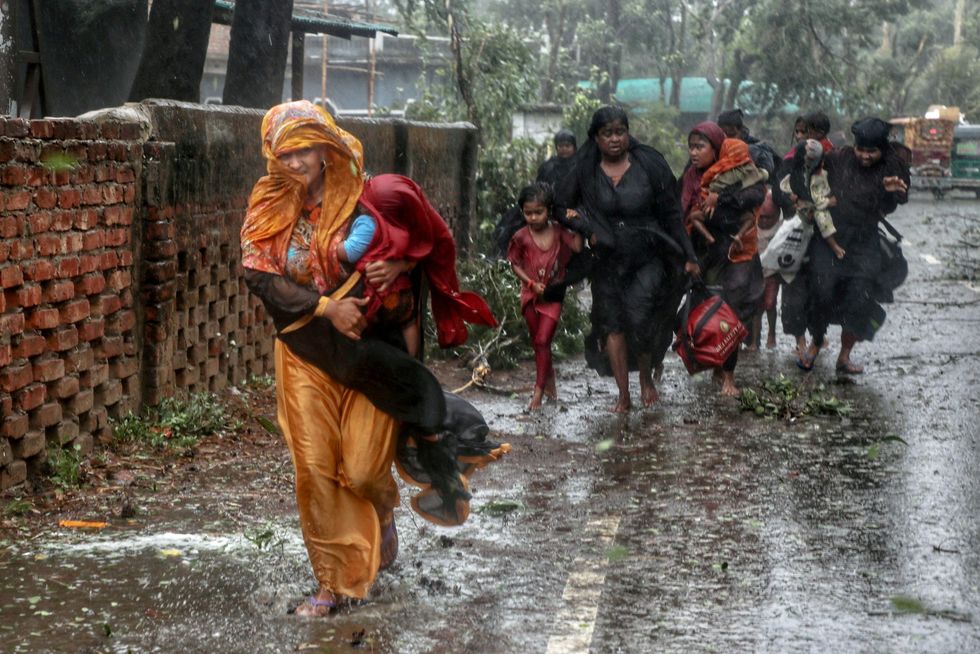Cyclone Mocha crashed through Myanmar and southeastern Bangladesh last Sunday (14), sparing sprawling refugee camps, but bringing a storm surge to swathes of western Myanmar where communications were largely cut off.
Mocha made landfall between Cox’s Bazar in Bangladesh and Myanmar’s Sittwe packing winds of up to 195 kilometres (120 miles) per hour, in the biggest storm to hit the Bay of Bengal in over a decade.
By late Sunday the storm had largely passed and India’s weather office said it would weaken as it hit the rugged hills of Myanmar’s interior.
Some 400-500 makeshift shelters were damaged in camps housing almost one million Rohingya refugees in Bangladesh’s Cox’s Bazar, but there were no immediate reports of casualties, refugee commissioner Mizanur Rahman said.
In Teknaf in Bangladesh volunteers emerged to remove fallen trees and other obstacles from the roads. Disaster official Kamrul Hasan said the cyclone had caused “no major damage” in Bangladesh, adding authorities had evacuated 750,000 people ahead of the storm.
Communications with the port town of Sittwe in Myanmar were largely cut off following the storm, correspondents said.

Streets in the town of around 150,000 people were turned into rivers as the storm surged ashore, tearing roofs from buildings and downing power lines.
The wind ripped apart homes made of tarpaulin and bamboo at one camp for displaced Rohingya at Kyaukphyu in Myanmar’s Rakhine state.
Its residents were anxiously watching the rising sea tide, camp leader Khin Shwe said.
The United Nations refugee office said it was investigating reports that Rohingya living in displacement camps had been killed in the storm. It was “working to start rapid needs assessments in hard-hit areas” of Rakhine state, it added.
In Bangladesh, authorities have banned Rohingya refugees from constructing concrete homes, fearing it may encourage them to settle permanently rather than return to Myanmar, which they fled five years ago following a brutal military crackdown.
The camps are generally slightly inland but most of them are built on hillsides, exposing them to the threat of landslides. Forecasters expect the cyclone to bring a deluge of rain, which can trigger landslips.
Hundreds of people also fled Bangladesh’s Saint Martin’s island, a local resort area right in the storm’s path, with thousands more moving to cyclone shelters on the coral outcrop.
The storm had uprooted hundreds of trees on the island councillor Noor Ahmed said. “But we don’t have any reports of death. Two persons were injured as they were hit by fallen trees.”
Cyclone Mocha is the most powerful storm to hit Bangladesh since Cyclone Sidr, Azizur Rahman, the head of Bangladesh’s Meteorological Department, said.
Cyclone Sidr hit Bangladesh’s southern coast in November 2007, killing more than 3,000 people and causing billions of dollars in damage.
In recent years, better forecasting and more effective evacuation planning have dramatically reduced the death toll from such storms.
Operations were suspended at Bangladesh’s largest seaport, Chittagong, with boat transport and fishing also halted. (AFP)


















